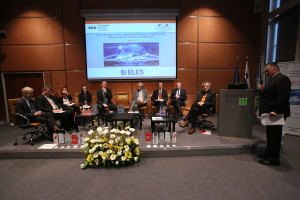Energy leaders made wide ranging contributions, including European Commissioner Violeta Bulc who described in a keynote speech the importance of energy transformation, the national challenge of low carbon transport and the opportunities for new projects.
The Minister for Energy, Peter Gašperšič, said:
Franc Žlahtič, Chair of the Slovenian member committee, is convinced that:
There were also major contributions from Professor Jean-Michel Glachant, Florence School of Regulation and Loyola de Palacio, Chair at the European University Institute, who pointed out the challenges and risks that current energy policies present and which have to be considered when creating future energy policies.
Representatives from industry went on to highlight some of the challenges they thought needed to be addressed which included fragmentation and lack of connection between projects. This was then followed with examples from European countries where energy companies have overcome these challenges as in Germany where they have integrated energy projects and in this way transformed their activities.
Finally, Sibil Svilan, Director of the Slovenian Bank, Slovenska izvozna in razvojna banka, (SID), a national financial hub, talked about how to use European funds and instruments such as the Connecting Europe Facility (CEF) and the European Fund for Strategic Investments (EFSI) which can yield finance for energy related projects.
The conclusions resulting from the conference, which was also supported by the Slovenian Ministry for Infrastructure and the Chamber of Commerce and Industry, were:
-
Establish a sustainable and environmentally friendly national energy policy that provides a predictable regulatory framework for project managers.
-
Describe how and which projects and under what conditions national targets are achievable.
-
Encourage a discussion on how to connect, manage and fund these projects, and above all, how to use and connect domestic expertise in order to prevent brain drain.






